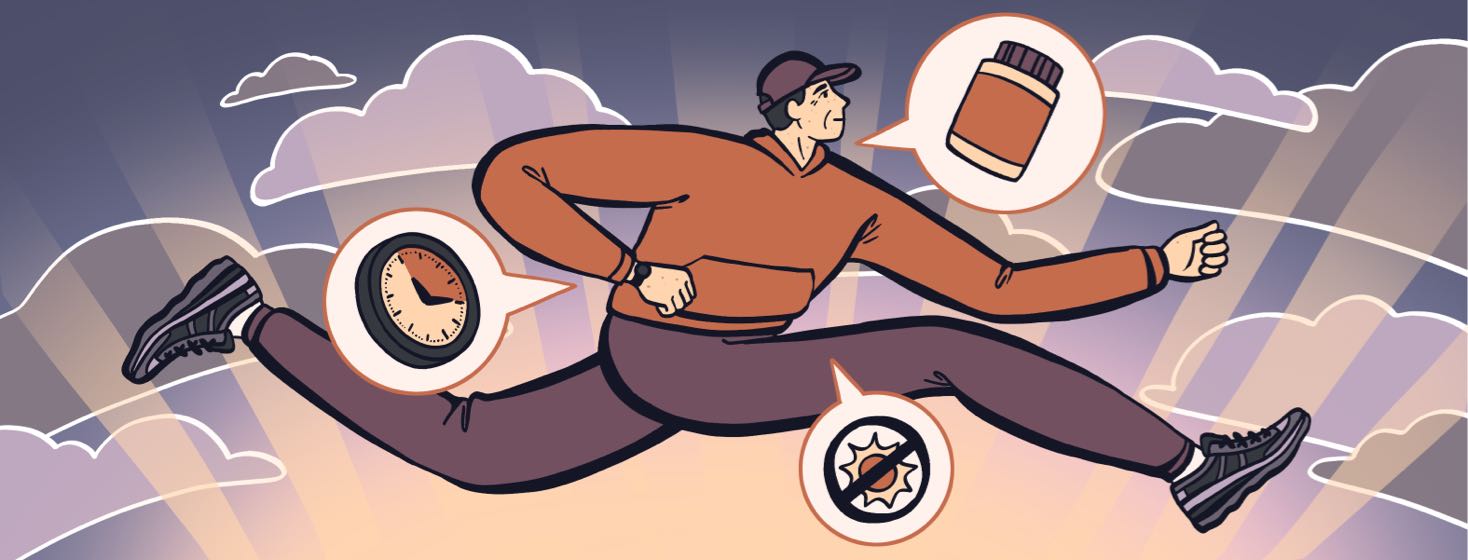Outdoor Exercise Tips for Skin Cancer Survivors
Growing up I played every sport imaginable, which meant a lot of outdoor exercise as a kid. Throughout high school and college I was a competitive track and field athlete. Competing at that high of a level meant way too many hours training and exercising in the sun. After I graduated college, I shifted my athletic pursuits into volleyball and CrossFit. Again, both of these sports require a considerable amount of time outdoors. As you can tell, sports and exercise are very much a part of who I am.
Skin cancer changes my outdoor routine
When I was diagnosed with melanoma, dropping outdoor activities was not an option. However, I needed to be smarter about my skin health. I needed to adopt new habits that would allow me to continue doing what I love, while also limiting my UV exposure.
Here are some of the easiest habits I’ve developed and products I’ve found that allow me to continue my exercise routines while minimizing the risk to my skin health.
Exercise before the sun comes up
This is one of the easiest ways to enjoy the outdoors without risking UV exposure. While it might not be a useful tip for group sports, it certainly helps for people who enjoy to run. Running in the morning not only helps keep your skin healthy, but it’s a great way to start the day with a sense of accomplishment.
Set alarms for sunscreen re-application
If I’m going to be outside for more than an hour or two, I’ll set an alarm to go off every 1.5 – 2 hours. I often get lost in the moment and I’m awful at keeping track of time. Having an alarm go off is an unavoidable reminder to re-apply sunscreen at the proper time.
Wear lightweight polyester UPF certified clothing
I live in New Orleans, meaning it can get brutally hot outside. I’ve personally found that lightweight polyester makes for some of the best workout gear, especially in the heat. Although polyester is naturally UV protective, you’ll still want to make sure it’s UPF certified so you know the exact amount of protection you’re receiving.
As far as product recommendations go (my very biased opinion): one of my favorite UPF brands out there is Rayward Apparel (a business I own and manage). Every Rayward product and color variation is UPF certified.
And for my unbiased opinion: I’m a big fan of Under Armour’s heat gear line of products, especially their long sleeve compression shirts. Most of their HeatGear products are certified at UPF 30, but you’ll have to check each individual product for confirmation. Also, I really like compression clothing when exercising. It pulls the moisture off your body quickly, allowing it to evaporate faster and keep you cooler.
Helpful dietary supplements
My dermatologist recommended Heliocare pills to me about a year ago and I’ve been taking them ever since. Heliocare is a dietary supplement made from a leaf extract. Taken daily, these pills are supposed to help fortify and protect your skin. The advanced formula also includes Nicotinamide (B3). B3 is a vitamin that further helps protect your skin from UV damage along with some other skin related benefits. I’m not a medical professional, but I trust my dermatologist.
It’s important to note that these pills are not a substitute for proper sun protection. Even while taking the pills you still need to keep your skin protected like you always have. However, it can’t hurt to do a little extra. They are generally pretty cheap and I’ve personally never had any negative side effects, but that may not be the case for everyone. I personally believe in them, but before taking them for yourself I’d recommend consulting your dermatologist or another medical professional to make sure it’s right for you.

Join the conversation